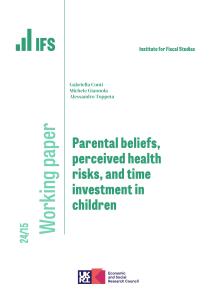You probably won’t have heard of Clare Lombardelli. She has just been appointed chief economic adviser at the Treasury, making her one of the most important and influential economists in the country.
And quite a job she has ahead of her. This is a tough job at the best of times. It is probably tougher now than ever before, given all the complexities and uncertainties unleashed by Brexit. She also will have to deal with scandalous and ignorant attacks, from members of the governing party itself, on the honesty and integrity of economists working in government. Combining outstanding intellect with the sort of political nous you can pick up only by working as principal private secretary to the chancellor and private secretary to the prime minister, Ms Lombardelli is perfectly placed to take on these challenges.
In a shockingly male-dominated profession, she is also breaking new ground as the first female chief economic adviser. It will be the first time that the government economic service has had two female heads. This is cause for some celebration.
Despite the importance and difficulty of the job, what she won’t be doing is earning as much as large numbers of, overwhelmingly male, economists in other parts of the public sector, academia and, of course, the City. That’s not because of any gender bias on the part of the Treasury. They don’t pay any of their staff terribly much relative to what they could earn elsewhere.
Her predecessor in this role near more than doubled his salary by the simple expedient of moving to the Bank of England. He could have got more moving to the City. We are fortunate, indeed, that individuals of this quality continue to devote their lives to public service and doing what they can to ensure that policy is made as well as possible in the service of government and the public. Those levelling unfounded accusations at such public servants would do well to remember that.
Ms Lombardelli’s appointment is a reminder that, despite the fact that women still do less well than men in the labour market, progress continues to be made. And despite the well-publicised problems faced by the BBC, and despite years of pay restraint, the public sector continues to take the lead in offering a better deal for female employees than does the private sector. Women working in the public sector earn noticeably more on average than similarly educated women working in the private sector.
Across the economy, though, women’s pay remains a lot lower than men’s: they are paid about 20 per less per hour, on average. That gap has come down from nearly 30 per cent in the early 1990s, but it is still strikingly high. In any case, part of that improvement comes not from any change in employer behaviour — it’s just that women have been getting better-educated more quickly than men. In fact, women are now more likely to be graduates than men. That 20 per cent gap persists despite the fact that women are better educated on average than men.
The rest of that narrowing in the gender wage gap comes from an improvement in the wages of less well educated women relative to the wages of less well educated men. The gap for those educated merely to GCSE level has come down from 28 per cent to 18 per cent. Part of that will be down to the loss of opportunities for men in traditional manufacturing industries. Part of it may be down to the introduction of the minimum wage, which has helped far more women than men. There’s still a long way to go, but that’s good progress.
Where there has been absolutely no progress has been in closing the pay gap for graduates. That gap, rather depressingly, has been absolutely static at about 22 per cent for a quarter of a century. By comparing these numbers, you’ll see another change. Historically, it’s been less well educated women who have suffered the biggest pay penalty relative to men. It is now the best educated who, on average, suffer the biggest penalty. Perhaps that’s why the plight of the highly educated and, by any normal standards, highly paid BBC stars seems to have touched such a nerve.
Part of the reason for this turnaround relates to what happens to wages when people, nearly always women, move into part-time work. It’s not so much that their hourly wages fall dramatically at the point at which they start to work part-time, rather that they stop rising. Male graduates continue to see their wages rise as they gain experience and seniority through their 30s and 40s. For many female graduates who start working part-time once they become mothers, this progression comes to a grinding halt. This matters more for graduates because, if they continue to work full-time, their wages do tend to grow much faster than the wages of non-graduates. There is less progression to lose out on for those non-graduates who start working part-time.
Of course, lots of other things matter for the persistent gap in wages between men and women. But something in the working culture that seems to make part-time work so much less valuable than full-time work for wage progression looks like a problem worth focusing on. Whether it’s because part-timers lose out on training, on informal interactions at work or because they are not offered opportunities for promotion, this is something that employers and government should surely be addressing. And to drag this column screaming back to the start, this is the sort of issue and analysis that can’t be ignored by our government and its new chief economic adviser. Brexit won’t make other pressing issues go away.
Paul Johnson is director of the Institute for Fiscal Studies. Follow him on @PJTheEconomist. This article was first published in the Times newspaper and is reproduced with permission.








